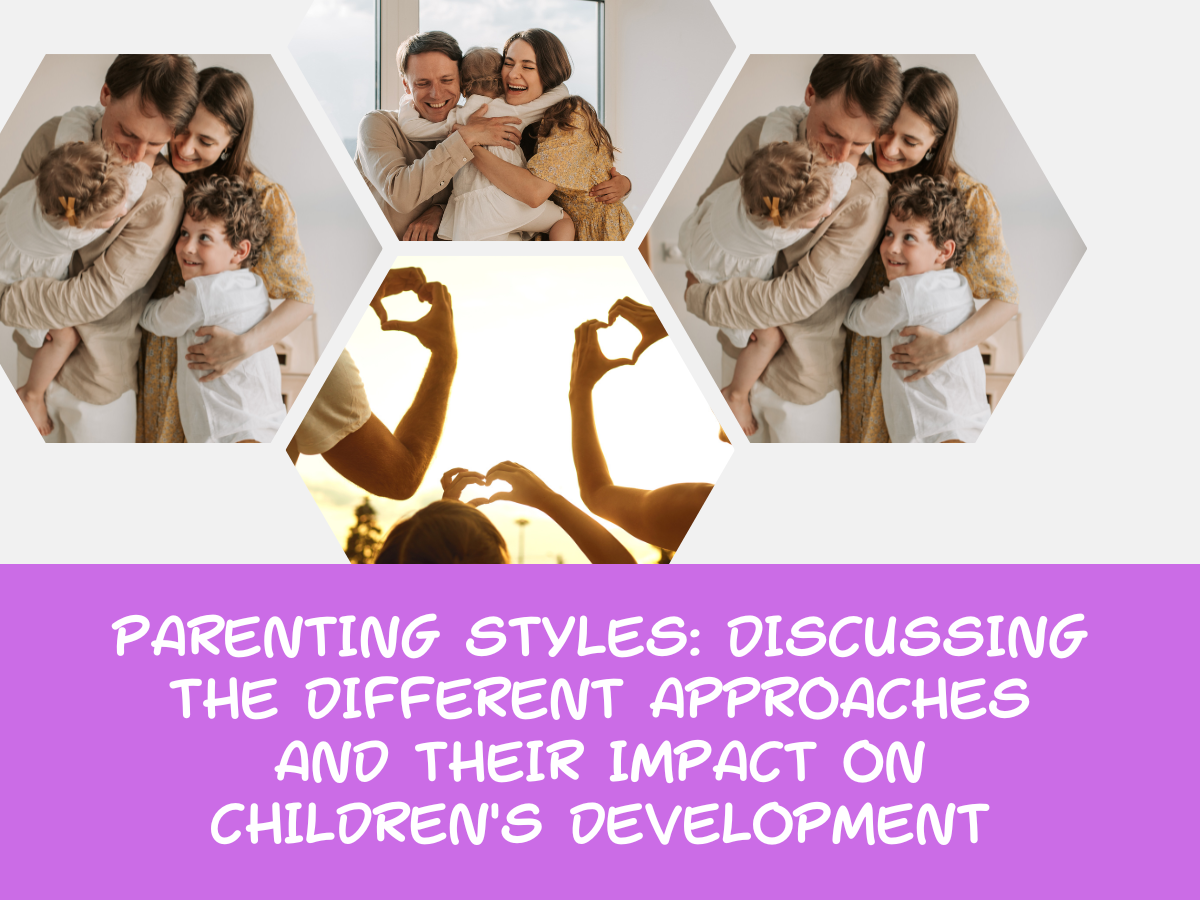Parenting Styles: Discussing the Different Approaches and Their Impact on Children's Development
By~ Scholar Planet
Created At: 11 Jun, 2023

Parenting plays a pivotal role in
shaping a child's development and overall well-being. How parents choose to
raise their children can have a lasting impact on their emotional, cognitive,
and social development. Over the years, researchers have identified various
parenting styles, each characterized by different levels of control, warmth,
and responsiveness. In this article, we will explore three prominent parenting
styles: authoritarian, permissive, and authoritative, and discuss their effects
on children's development.
1. Authoritarian Parenting:
Authoritarian parents are known
for their strict rules, high demands, and low responsiveness. They expect obedience
and unquestioning compliance from their children. These parents often use
punishment as a means of discipline and tend to exert control without providing
explanations or allowing room for negotiation. While authoritarian parenting
may instil discipline and respect for authority, it can also have negative
consequences. Children raised in such an environment may develop low
self-esteem, lack self-confidence, and struggle with decision-making skills.
They may also experience difficulties in social interactions, as they may have
limited opportunities to develop problem-solving abilities and assertiveness.
2. Permissive Parenting:
Permissive parenting is
characterized by a low level of control and high levels of warmth and
responsiveness. Permissive parents tend to have few rules or boundaries,
allowing their children to express themselves freely. They often avoid conflict
and may act more like a friend than an authority figure. While this parenting
style promotes independence and creativity, it can also have drawbacks.
Children raised in permissive environments may struggle with self-discipline,
have difficulty following rules, and lack a sense of responsibility. They may
also exhibit entitlement and have challenges in adapting to environments that
have clear expectations and limits.
3. Authoritative Parenting:
Authoritative parenting strikes a
balance between control and warmth, setting clear rules and expectations while
also being responsive to their children's needs. These parents are nurturing,
supportive, and provide explanations for their rules. They encourage
independence and individuality while maintaining appropriate boundaries.
Research suggests that authoritative parenting is associated with positive
developmental outcomes. Children raised in authoritative households tend to be
more self-confident, socially competent, and have better academic performance.
They develop good decision-making skills, have higher self-esteem, and exhibit
better emotional regulation.
Parenting styles have a
significant impact on children's development, but it is essential to recognize
that there is no one-size-fits-all approach. Children are unique individuals,
and what works for one child may not work for another. It is crucial for
parents to adapt their parenting styles based on their child's temperament,
needs, and developmental stage.
In
conclusion, parenting styles significantly shape a child's development.
Ultimately, a nurturing, responsive, and flexible parenting approach that
combines clear expectations with emotional support is likely to provide the
best foundation for children's development.
